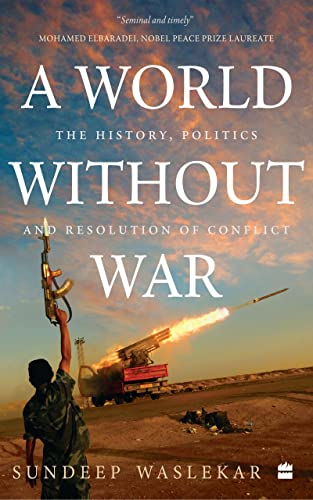The quest for a world devoid of war stands as one of humanity’s most enduring aspirations. Throughout history, countless civilizations have grappled with the specter of conflict, often yielding to the tumultuous forces of violence and discord. The Bahá’í teachings offer profound insights into the potential for achieving world peace, positing that such an ideal is not merely a noble aspiration but an attainable reality. Yet, the pervasiveness of war raises a poignant question: Is world peace merely a pipe dream, or does it represent an achievable goal within the collective grasp of humanity?
At the heart of Bahá’í teachings lies a fundamental principle: the oneness of humanity. This tenet serves as a linchpin in the quest for peace, emphasizing that all people, regardless of nationality, religion, or ethnicity, are interconnected. The realization of this interconnectedness is a prerequisite for transcending the discord that has historically pitted societies against one another. The Bahá’í Faith asserts that as humanity evolves, it must cultivate a global consciousness marked by unity and collaboration. Such a transformative awareness could serve to mitigate the factors that precipitate conflict, offering a robust foundation upon which a peaceful world might be constructed.
The idea of unity extends beyond a mere acknowledgment of diversity; it necessitates an active engagement with and respect for differing perspectives. The Bahá’í teachings exhort individuals to foster an ethic of inclusivity, wherein the varying cultural, religious, and social contributions of all peoples are recognized and celebrated. This calls forth a paradigm shift in how communities and nations interact, moving from adversarial stances toward cooperative endeavors aimed at mutual understanding and reconciliation.
A recurrent theme within the discourse of war and conflict is the role of power dynamics. Often, wars are fueled by the quest for dominance—whether economic, territorial, or ideological. The Bahá’í perspective highlights that peace cannot be sustained in an environment rife with inequity and injustice. Western and Eastern philosophical traditions alike acknowledge that harmonious coexistence is contingent upon equitable resource distribution and social justice. Therefore, a commitment to addressing the root causes of poverty, inequality, and disenfranchisement is paramount in the formulation of a peaceful global society.
Moreover, the Bahá’í teachings illuminate the importance of education as a catalyst for peace. An informed populace is pivotal in the prevention of war. Ignorance, coupled with fear and misunderstanding, often breeds hostility. By promoting universal education—especially for girls and marginalized communities—the Bahá’í approach seeks to cultivate a generation equipped not only with knowledge but also with the empathy necessary for peaceful conflict resolution. When individuals are educated about their shared humanity, they are more likely to reject violent solutions and embrace dialogue as a means of resolving differences.
Another significant dimension to the discourse on war and peace is the role of governance. The Bahá’í teachings advocate for systems of governance that reflect a participatory and democratic ethos. This contrasts sharply with autocratic regimes that frequently resort to military solutions to stave off dissent. The promotion of transparent, accountable governance structures can osmotically lead to a culture that prioritizes diplomacy over armed confrontation. By engaging citizens in the decision-making processes, societies can cultivate a sense of ownership and responsibility toward collective well-being and societal harmony.
In considering the global context, it is essential to examine the geopolitical landscape, characterized by power struggles and competing national interests. These dynamics can create a fertile ground for conflict. The Bahá’í teachings urge a recognition of the interconnected nature of the modern world. Global challenges—such as climate change, pandemics, and economic instability—demand collaborative efforts beyond national borders. This necessitates a reorientation of how nations relate to one another, shifting from competitive paradigms toward cooperative frameworks that emphasize joint problem-solving and mutual benefit.
Nevertheless, the question remains: Can peace endure in a world so often marked by strife? The Bahá’í response posits that peace is not merely the absence of war but a proactive condition that requires continuous effort and vigilance. The establishment of peace hinges upon the creation of just social systems, equitable economic structures, and inclusive governance models—an intricate tapestry that requires the input and cooperation of all global citizens. Recognizing that interdependence is intrinsic to human existence can propel society toward concerted action aimed at the greater good.
In conclusion, while the notion of a world without war may initially appear idyllic—a distant utopian vision—the Bahá’í teachings articulate a roadmap grounded in attainable principles. By embracing the oneness of humanity, striving for justice, fostering education, and cultivating democratic governance, the contours of a peaceful world become less of a distant horizon and more of a collective journey. Humanity stands at a pivotal moment in time when the pursuit of peace must be taken earnestly, not as a fleeting aspiration, but as an essential endeavor that lies within reach. Ultimately, the realization of a world without war is not merely a pipe dream; it is a reflection of our shared potential for greatness when we choose unity over division, cooperation over conflict, and love over animosity.
